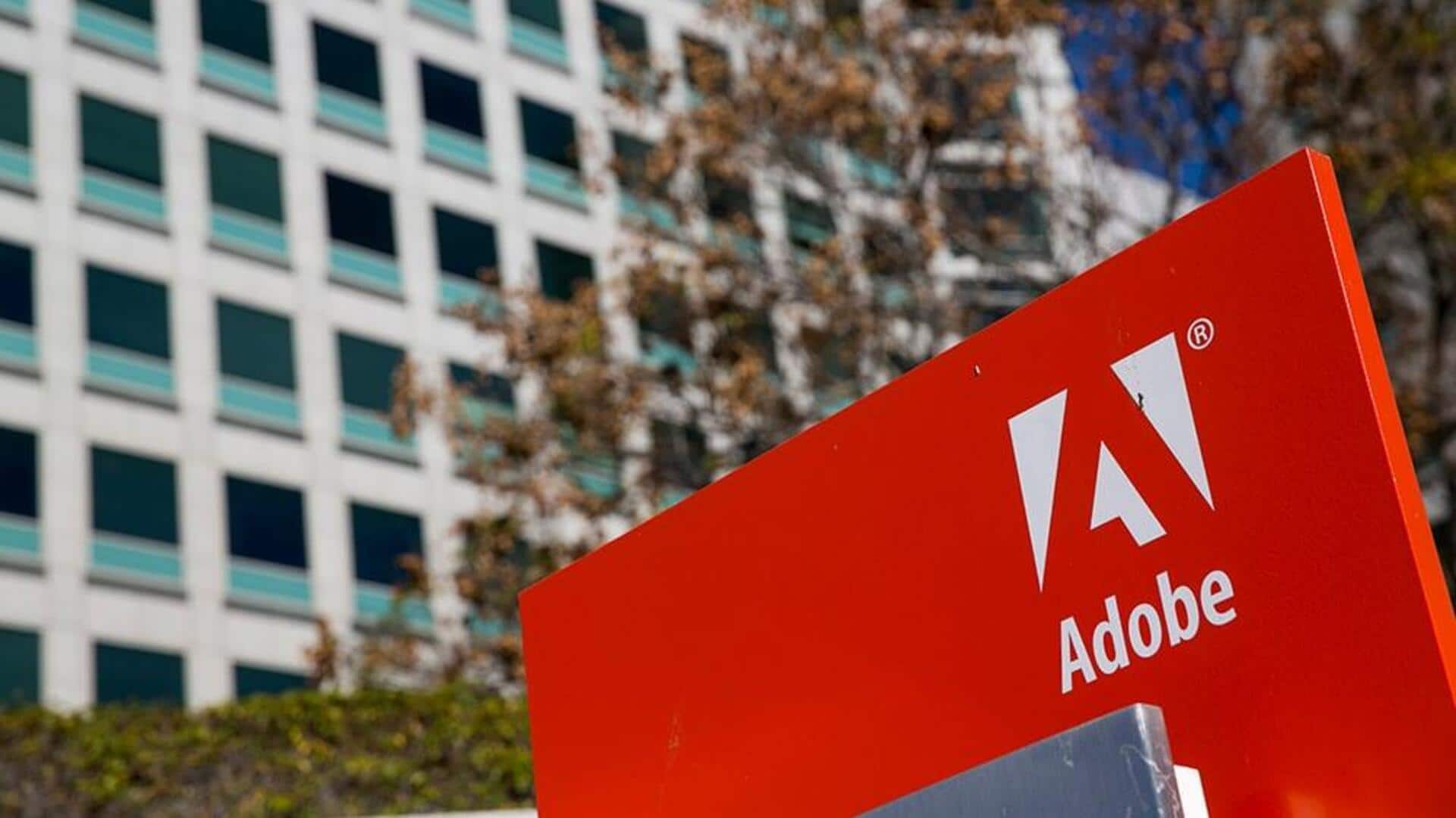
How Adobe aims to combat deepfakes during US presidential elections
What's the story
Adobe is taking significant steps to combat the spread of artificial intelligence (AI)-generated videos or deepfakes in the upcoming US presidential election. A recent survey sponsored by Adobe has revealed widespread concern among Americans about the potential influence of deepfakes on election results. The study found that 80% of over 2,000 adults surveyed are worried about deepfakes affecting the outcome of elections. Furthermore, due to misinformation prevalence, 40% of participants have reduced or stopped using certain social media platforms.
CAI Launch
Initiative to counter AI-generated misinformation
In response to the growing threat of AI-generated misinformation, Adobe launched the Content Authenticity Initiative (CAI) in 2019. This initiative was developed in collaboration with The New York Times and X (formerly Twitter). The CAI created an open-source code called Content Credentials that can be integrated into products at no cost. This technology attaches metadata to digital content, allowing users to trace its origin and editing history, and determine if AI was involved.
Content credentials
Adobe's CAI: A robust solution against deepfakes
Andy Parsons, head of Adobe's Content Authenticity Initiative (CAI), warns that "AI-powered misinformation poses a significant risk to election integrity." He further emphasized the need for adequate safeguards to prevent this issue from escalating. Parsons clarified the objective of the CAI, stating that its mission "has remained steadfast and constant, and that is to give information consumers, fact checkers, [and] creatives the ability to know what they're doing." He emphasized that Content Credentials are more robust than digital watermarks.
Countermeasures
Need for collective effort to combat misinformation
Parsons advocates for the widespread adoption of a digital content certification standard like Content Credentials and education in media literacy. He stated, "None of these countermeasures is a silver bullet. It's going to take government, civil society, technology companies, and a variety of technological approaches to really address misinformation." Further, Parsons emphasized the need for collective efforts from various sectors to effectively tackle AI-related misinformation.